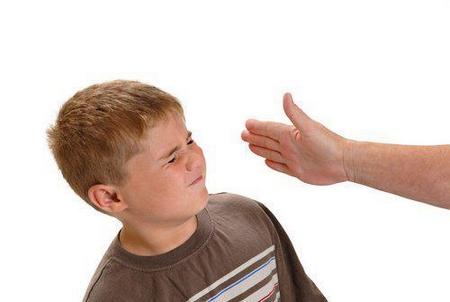Corporal Punishment: The Thin Line between Child Discipline and Child Abuse
 The corporal punishment/child abuse debate was re-sparked in the last six months due to the widespread coverage one football player received with regards to injuries he perpetrated against his son while inflicting corporal punishment.The authorities found, however, that he had crossed the line, that he went beyond providing punishment to his child, but inflicted serious physical harm against him. The line drawn between corporal punishment and child abuse is a very thin one, and many states are reviewing their current laws to see whether it is possible to make the line more pronounced and more likely to protect the rights of children and the rights of parents to be free of government intervention in how to raise a family.
The corporal punishment/child abuse debate was re-sparked in the last six months due to the widespread coverage one football player received with regards to injuries he perpetrated against his son while inflicting corporal punishment.The authorities found, however, that he had crossed the line, that he went beyond providing punishment to his child, but inflicted serious physical harm against him. The line drawn between corporal punishment and child abuse is a very thin one, and many states are reviewing their current laws to see whether it is possible to make the line more pronounced and more likely to protect the rights of children and the rights of parents to be free of government intervention in how to raise a family.
Corporal Punishment and Abuse Defined in Illinois
In Illinois, corporal punishment is not defined as it is in other states. The statute states that parents are prohibited from inflicting “excessive” corporal punishment, but without little more definition to help parents decipher between “excessive and “acceptable.” In the child abuse statute, child abuse was defined as inflicting even minor physical injury (other than by accidental means), which causes any sort of disfigurement, physical or emotional impairment, loss of a body function as a result, or which causes death. But even in the statute, it seems that there is little guidance: it either is child abuse or it isn’t.
With the law being difficult to decipher, it begs the question, why do people even bother to toe the line? Does corporal punishment work on children (when not inflicted at the levels of child abuse)? Who are the parents that are promoting corporal punishment?
The Statistics of Corporal Punishment
In the United States as a whole, a study supported that about 77 percent of the Americans agreed that children should be physically disciplined and that sometimes corporal punishment is necessary; this is a massive movement against spanking since 1986 where 84 percent of the population believed that spanking was necessary.
Another study published by the University of Chicago’s General Social Survey (GSS) evaluated Americans from all ethnicities, religions, party, and region to determine who and where corporal punishment has received the most support.
- The study found that born-again Christians are more likely (by a significant degree) to believe in spanking over not born-again Christians.
- With regards to race, it was shown that African Americans were more likely to favor corporal punishment (by 11 percentage points) than Whites (including Hispanics), and non-whites and non-blacks were even less likely supporting the use of physical discipline.
- Regionally, U.S. residents living in the south were about 17 percentage points more likely to spank people than the northeast (which approved least of spanking); though the south was more pro-spanking than other regions, mid-westerners and westerners followed closely.
- Finally, Republicans are more likely (by a wide margin) to be pro-spanking than Democrats.
The Science Behind Corporal Punishment
With many Americans in support of corporal punishment, the next consideration is whether it works to actually discipline a child? In a study put forth by Psychologist Elizabeth Thompson Gershoff, it was demonstrated the following:
- Children more frequently spanked were more aggressive than less-spanked children.
- Physical punishment does not deter bad behavior in the long run; it can make it worse.
- Children who are physically punished are more likely to use physical abuse as an answer to their problems.
- Physically punished Children might have alterations in their brain as a result of the abuse. These children's’ brains showed less gray matter in their prefrontal cortex, which could make them more inclined to be depressed, addictive, or have mental health disorders. There was also a link between corporal punishment and a child’s decrease in cognitive ability.
Experienced Family Law Attorneys in DuPage County
Abuse within the household is not okay and it is important to know you and your family’s options. The family law attorneys at Mevorah & Giglio Law Offices can help advise you on your courses of action and the consequences of any action you might take. Contact our skilled DuPage County family law attorneys today for a free and confidential consultation.
 English,
English,
 Spanish,
Spanish,
 Polish,
Polish,
 Urdu
Urdu













 Make a Payment
Make a Payment



